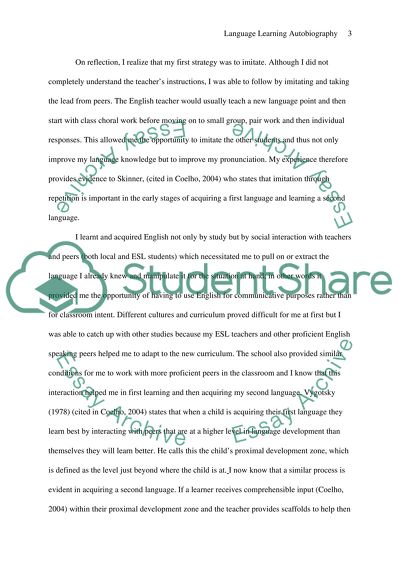Cite this document
(“Language Learning Autobiography Essay Example | Topics and Well Written Essays - 1250 words”, n.d.)
Retrieved from https://studentshare.org/english/1406657-language-learning-autobiography
Retrieved from https://studentshare.org/english/1406657-language-learning-autobiography
(Language Learning Autobiography Essay Example | Topics and Well Written Essays - 1250 Words)
https://studentshare.org/english/1406657-language-learning-autobiography.
https://studentshare.org/english/1406657-language-learning-autobiography.
“Language Learning Autobiography Essay Example | Topics and Well Written Essays - 1250 Words”, n.d. https://studentshare.org/english/1406657-language-learning-autobiography.


